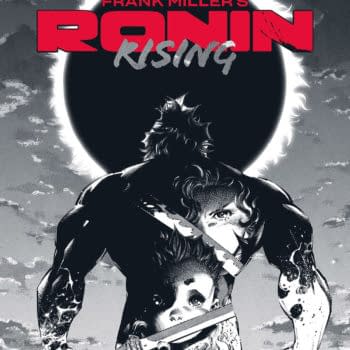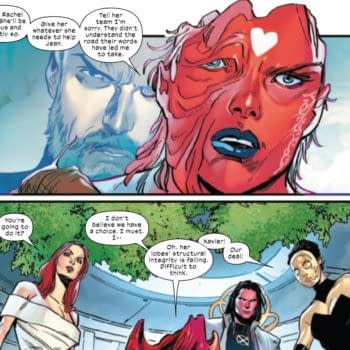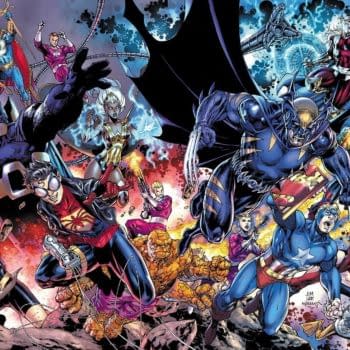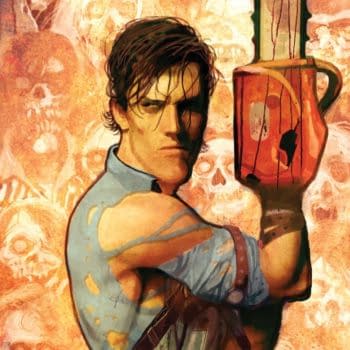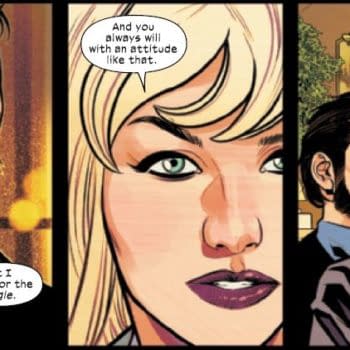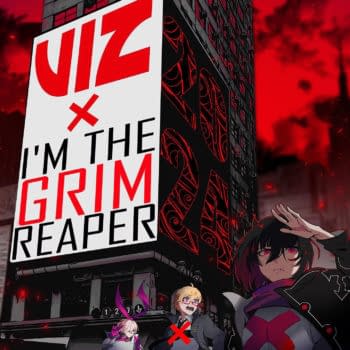Posted in: Comics | Tagged:
Sex, Drugs & Comics: A Survivor's Tale Part Three
Tim Pilcher, ex-Vertigo Comics editor, is serialising the first chapter of his new book Comic Book Babylon: A Cautionary Tale of Sex, Drugs & Comics on Bleeding Cool. The Kickstarter to fund publication starts next week.
After several years of moving around between London, Cornwall, and Kent, my parents finally settled in Virginia Water, on the Surrey/Berkshire border. My mum was employed as a live-in housekeeper and we had a large house to ourselves, next to an even larger house that she had to cook for, clean and manage. I was seven.
The first comics I consciously remember wanting and buying with my own money weren't the Beano and Dandy (I was already a member of the former's Dennis the Menace fan club, with its furry, goggle-eyed Gnasher badge). I was more cutting edge than that. My best friend, Andrew, and I both read Krazy. Launched by IPC in October 1976, Krazy was a humour comic that had a more contemporary, anti-establishment feel to it than anything the distinctly conservative Dundee-based DC Thomson published. We were entering the age of punk, after all. The back cover was always disguised as something innocuous like a schoolbook, a newspaper or some highbrow literature, so it could be flipped over at a moment's notice, whenever a parent or teacher strolled by. The lead story was the Krazy Gang, featuring Cheeky, and their battles with their nemesis, the fetid Pongo Snodgrass. I loved it with a passion.
The mid- to late-Seventies was a fantastic boom time for British comics. In the space of four years, four publications were launched that were to change my life and inform my comics reading for the next 20 years. I was into the new wave of edgy comics being put out by writer/editor Pat Mills and his cohorts at IPC. Those titles were Battle, Action, Starlord and 2000 AD. 1975's Battle was a war comic and—along with Commando Picture Library—taught me all the German I'd ever need to know, from "Achtung!" "Schell!" and "Donner und Blitzen" to "Gott im Himmel!" and "Nien! Nien! Der Englander Schwien!" However, unlike DC Thomson's Commando series, Battle was brutal in its depictions of war. Darkie's Mob—apart from having unfortunately unintentional racist connotations in its title—was a savage story of WWII in South East Asia. One issue saw the eponymous hero nailed to a corrugated steel roof by the Japanese, in all its bloody glory.
And Action wasn't much better. Here, we had possibly the most subversive comic of the Seventies. Issue #1 was cover-dated Valentine's Day, 1976 and it massacred the competition. The comic lifted concepts—or "dead cribs" as Mills called them—from all the cool films that were out at the time and turned them into strips for kids. Jaws became Hook Jaw, Rollerball became Death Game 1999 and Dirty Harry became Dredger. It was a masterstroke. All these were films I, and my friends, wanted to see, but were far too young to get into at the cinema. But now I could get my own versions on the comics' page, for a mere 7p! Every story was bloody, violent and subversive.
The very gore and brutality that made Action popular with me and all the other kids, also acted as a red flag to "concerned citizens", with The Sun newspaper calling it "the seven penny nightmare". Action became the centre of a campaign led by do-gooding busybody Mary Whitehouse and her evil cronies, the National Viewers' and Listeners' Association, as they tried to ban the comic. IPC sensed trouble on the wind and tried toning the content down.
By September 1976—less than seven months after launching—they even sent Action's editor, John Sanders, on to the primetime TV show Nationwide, where he tried to defend the comic from a forceful attack by interviewer Frank Bough, who condemned the comic for corrupting Britain's youth. This was the same Frank Bough who was later vilified in the tabloids in the '90s for taking cocaine, wearing lingerie at sex parties and visiting dominatrixes. Nothing wrong with any of that, of course, but if the tabloids have taught us anything, it's that self-righteousness is a double-edged weapon that's dangerous for those in the public eye to wield.
Bough's fall from grace paradoxically happened around the same time as Martin Barker's excellent book Action – The Story of a Violent Comic was released. History loves irony.
Although Action remained popular, its days were numbered and it eventually was watered down so much that it was merged with Battle to create Battle Action, before the Action part was finally removed.






